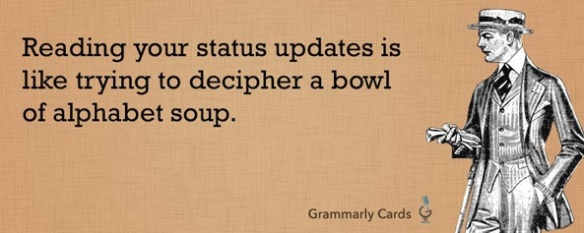
As part of my short series on editorial processes, I will be looking at proofreading, line-editing and copy-editing to give some insight onto the features that distinguish them from one another. Last month I looked at proofreading. This article covers a more substantive approach, line-editing.
What is line-editing?
Line-editing, unsurprisingly, works at the ‘line level’ of your text. Often confused with copy-editing (the subject of a future post), this is not a more intensive proofread, but a genuine deep edit that examines the detail of your writing to generally enhance your work. A line-editor will help with clumsy wording and sentence structure, improving your clarity and flow, and fact-checking. It could involve the moving, cutting or adding of whole paragraphs (or, if you really need it, chapters). This is generally what most laypeople think of as “editing”.
A deeper look
A proofreader looks for errors such as typos or obvious blunders. A copy-editor will work on things like grammar and consistency of language and regional spelling (i.e. UK or US English). A line-editor’s job usually comes before both of these things, and works hard to draw out the best from every line in your text. It could be considered “heavy editing” and, at the end of the process, you may be looking at a completely different piece of writing to the one you started with.
Rewording of sentences will help get rid of unnecessary passive voice, extensive adverbs (which Stephen King described as paving ‘the road to hell’) repeated words and phrases, tautology, cliché, overwriting, and mixed or broken metaphors and similes. There’s also an element of fact-checking and improving on the writer’s general voice and style.
Voice is something that I would prefer not to interfere with as an editor, but sometimes it’s necessary. Take a novel. If the writer’s personal voice is too strong, it can draw the reader out of the moment and spoil the illusion that all good fiction strives for. Charlotte Brontë is often lauded for breaking this illusion in Jayne Eyre (“Reader, I married him.”) and good editors have been undoing the damage she caused ever since! Voice should not be confused with style, which is (read “should be”) unique to every writer and carries an element of their voice within it.
Tone is also examined, to make sure that it’s appropriate. In an autobiography I would expect the writer’s voice, style and tone to naturally be perfectly appropriate, since it’s their story after all, but even here tone can distract or confuse the reader. It wouldn’t do to make jokes throughout the chapter of your heartbreaking divorce, for example, but the very nature of reliving such an upsetting episode could interfere with the writer’s sense of what’s appropriate for the scene. Likewise, a children’s picture book with a deadly serious tone probably wouldn’t go down so well (“I must protest, Sam-I-Am. I most sincerely would prefer not to eat your green eggs and ham.”).
I generally consider my job as a line-editor to scrub out anything that holds the text back and, if possible, also elevate the text to something closer to the writer’s original vision for their work, helping with vocabulary, sentence structure and imagery. I would also work (in the case of fiction) on characterisation, plotting and originality.
In terms of an ongoing editing process, I would expect line-editing to come first. Once the writer has written their first draft and given it a once- (or twice-) over and can no longer see how it can be improved, the line-editor gets a go. You could, potentially, end up with something completely different by the time they’ve finished, but it should be improved. The reason this would come before copy-editing is because there’s no use having a copy-editor scour your novel for problems with grammar, typos and other minute issues if the line-editor is going to cut that pointless dream sequence or rewrite all your dialogue afterwards.
Do I really need a line-editor?
How do I answer this? YES … Probably.
If you’ve finished working on a blog post or some SEO content for a website, there’s a case for saying that deep editing is unlikely to be a major advantage. Generally your proofreader, if they’re feeling generous, will point out any glaring errors whilst correcting your typos.However, if English isn’t your first language or if you’re a new hand at writing, an editor will really help you to develop simply by showing you where you might be going wrong (ideally with some helpful annotations to justify their changes and suggestions).
If you’re writing an essay, you’d be better off with a copy-editor than a proofreader so that you can have your grammar examined (not all proofreaders consider grammar part of their purview), and a line-editor may be of use there too. Most substantive edits will be a mixture of line-editing and copy-editing anyway, so it’s important to talk with your editor to discuss exactly what you expect from the process. Many fiction writers, when looking for an editor, are seeking a line-editor who will work on their copy too.
The people who I know who have undergone a third-party editing process have always been very relieved that they did!
Finally…

…learn from your editor!
—db
